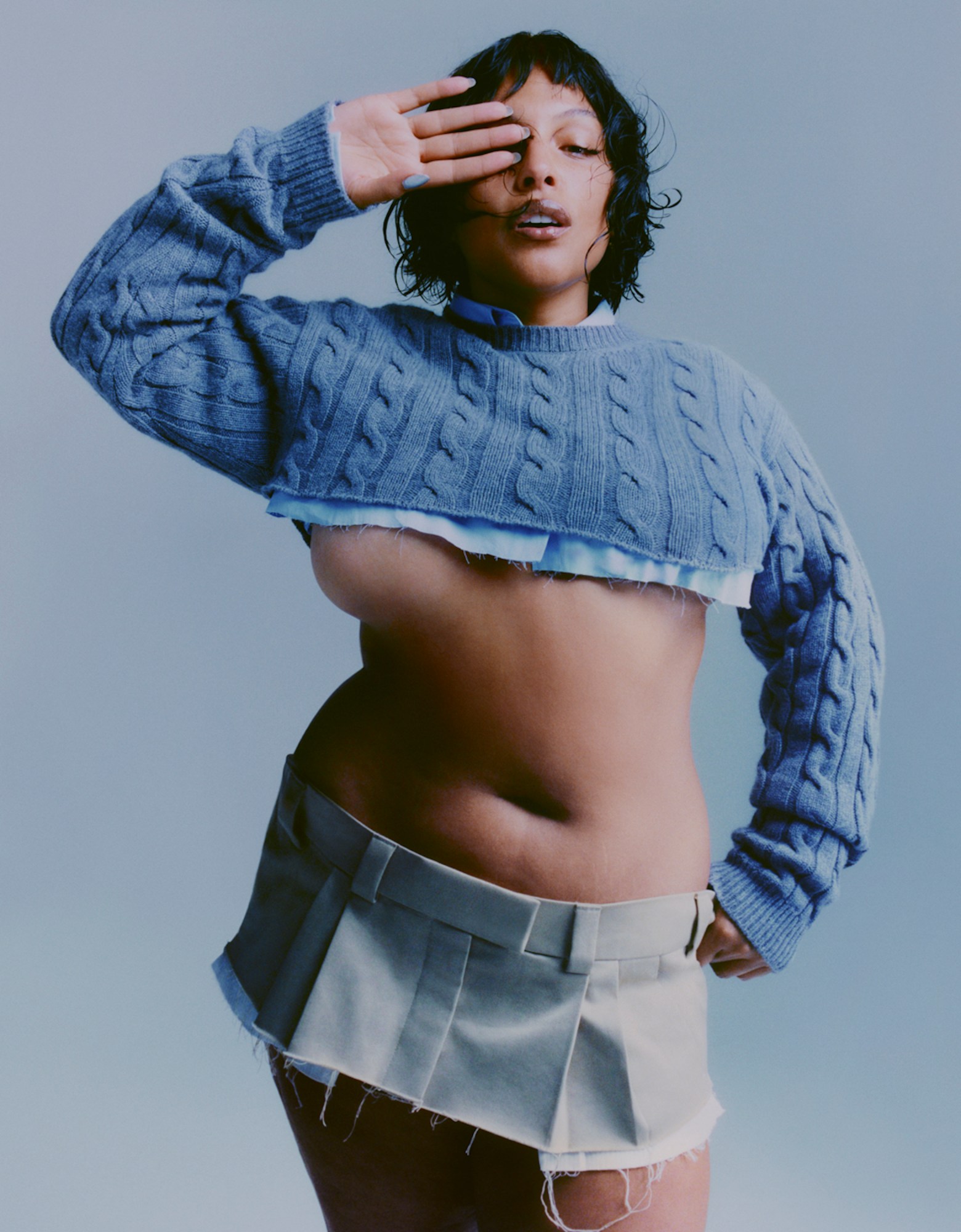This story originally appeared in i-D’s The Out Of Body Issue, no. 367, Spring 2022. Order your copy here.
For an industry that is all about clothes, the spring ready-to-wear collections had hardly any. Sex – or at least a voyeuristic notion of sexiness – came back to fashion in full force, not seen so brazen since the hedonistic, champagne-soaked days of a previous era. It was only inevitable, given the preceding months of cabin fever – and years of culturally-enforced puritanism. Often, it felt revivalistic, both in aesthetic and attitude; Y2K, warts and all. Bared bodies arrived on the catwalk in skimpy silhouettes that showcased glossy, svelte bodies. To put it bluntly: the runways clearly didn’t reflect the conversations that a sexually- empowered generation are having about bodies and sex-positivity, but rather reverted to celebrating a singular beauty standard – one that appears as narrow-minded as it is narrow-hipped.
Bigger girls – with their luscious thighs and hips and bellies – were nowhere to be seen, which is a shame considering that a handful of them have made strides as supermodels in the last decade. Like Paloma Elsesser for instance, who is starring on her fourth i-D cover this issue. Since being scouted on Instagram by the legendary Dame Pat McGrath, the 29-year-old model has blazed a trail with her swinging hips, irrefutable beauty, and astute observations about this industry. While she’s not the first plus-size model to grace the catwalk, what sets her apart is the particularly thoughtful and critical place she has carved out for other non-sample size bodies – making their inclusion in fashion not just the norm, but also the reference; the mood board; the moment. Between them, they may be in the minority – but they are often by far the most memorable. Paloma doesn’t want to be the only one, so she’s bringing her sisters up with her.
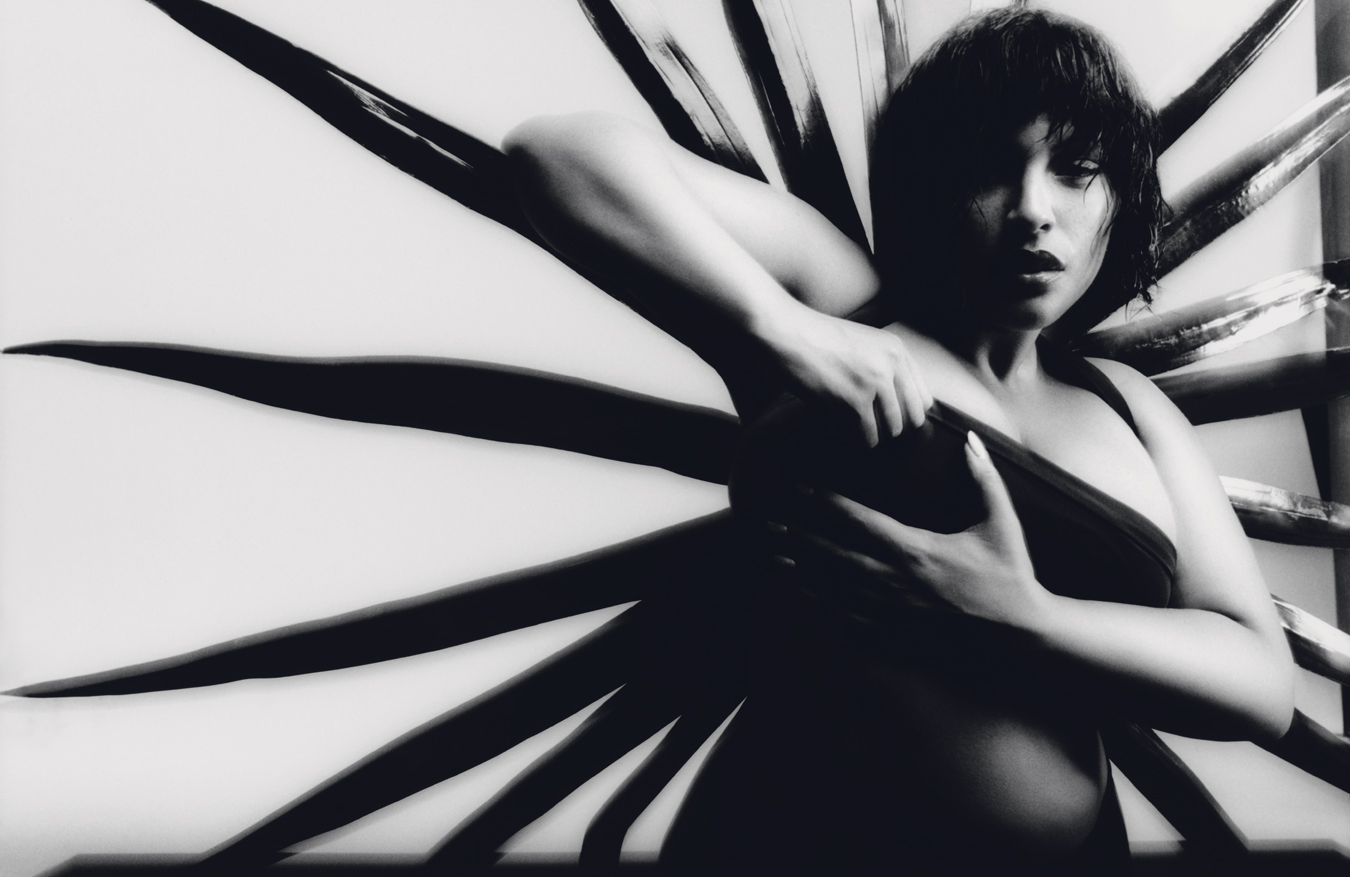
Ericka Hart is doing that too, albeit via different avenues. The author, model, and educator first went viral after going topless at a music festival in 2016, where she proudly showed off the scars from a double mastectomy she’d had because of breast cancer. She used her newfound fame to propel conversations around anti-Blackness, diverse representation, and cancer awareness; topics that remain central to her work. Here, Paloma and Ericka sit down to discuss their experiences with their bodies and their work.
Paloma: Hi Ericka.
Ericka: Hi boo. How are you?
Paloma: I’m really excited for this conversation. When we were discussing who I would speak to for this issue, you were literally the first person I thought of.
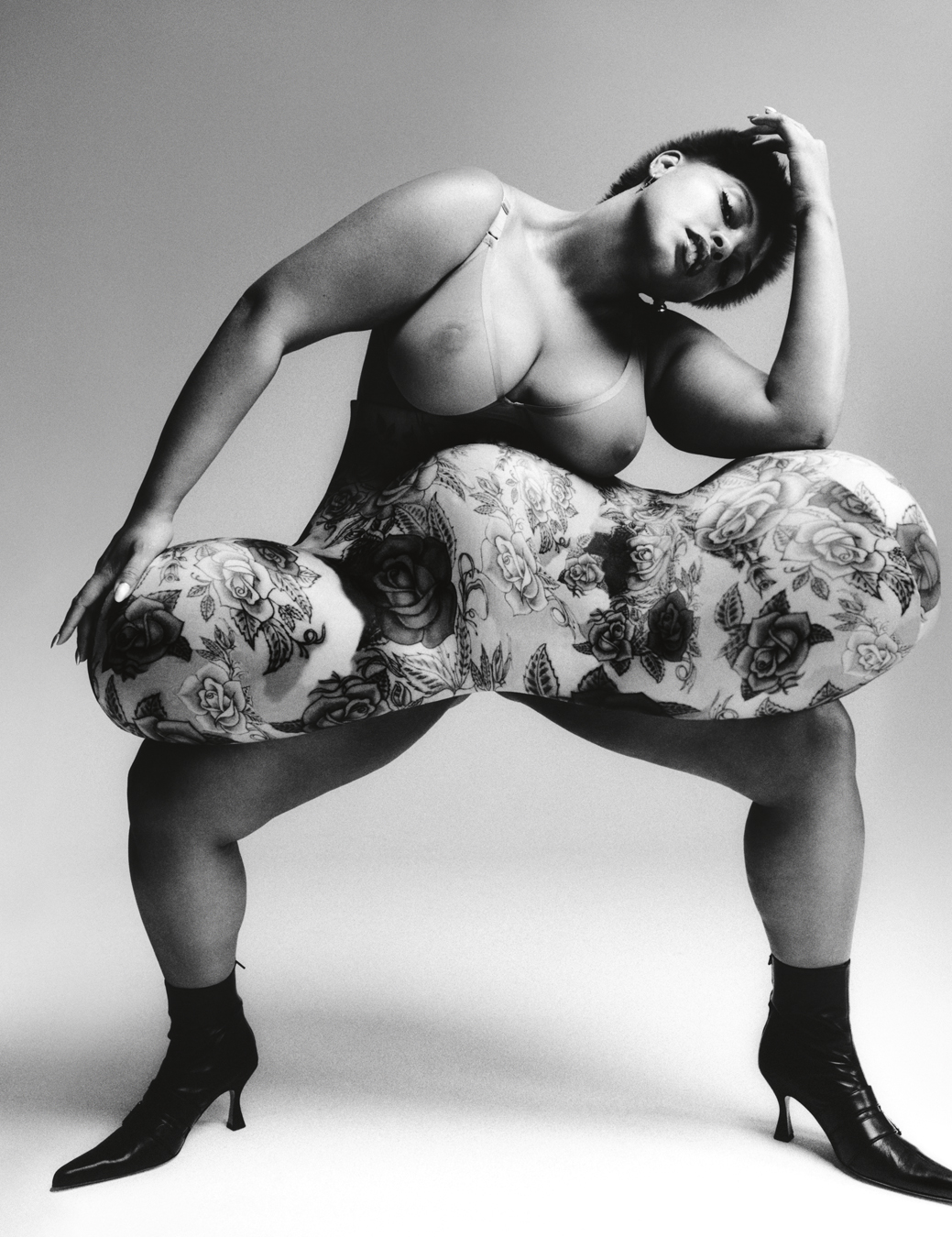
Ericka: Oh, I’m honoured!
Paloma: I think that I first came across your work when you were modelling with Chromat, and I immediately thought you were really fab and that you had a lot of authority in your body. I was new to modelling at the time, and I went to the casting for that show and I didn’t get confirmed – so I watched the show so closely! Everyone was so cool, and hot. Obviously, your story is incredible. But, beyond that, I just thought you were really smart.
I didn’t make fashion complicated. Fashion came complicated.”
Ericka: That’s so weird that you didn’t get confirmed. A total fail. I can’t remember when I first came across you; I feel like you have just been everywhere! I follow fashion, but I’m not truly a fashion girl – I don’t know all the brands and the designers and what’s in season. Obviously, your modelling is incredible, but I’m more interested in how your brain works. Although I’m totally basing that just off watching all your Instagram stories.
Paloma: I appreciate that, because while Instagram is just a part of who we are but doesn’t define us, it’s not easy to show the complexity of who you are on there. But I think the same about you – not only that you are stunning, and someone who I feel I identify with, but we both operate with a level of criticality and understanding about our bodies. Although lately, I’ve been feeling a bit less critical, or at least a bit bored with constantly challenging everything. It’s not linear.
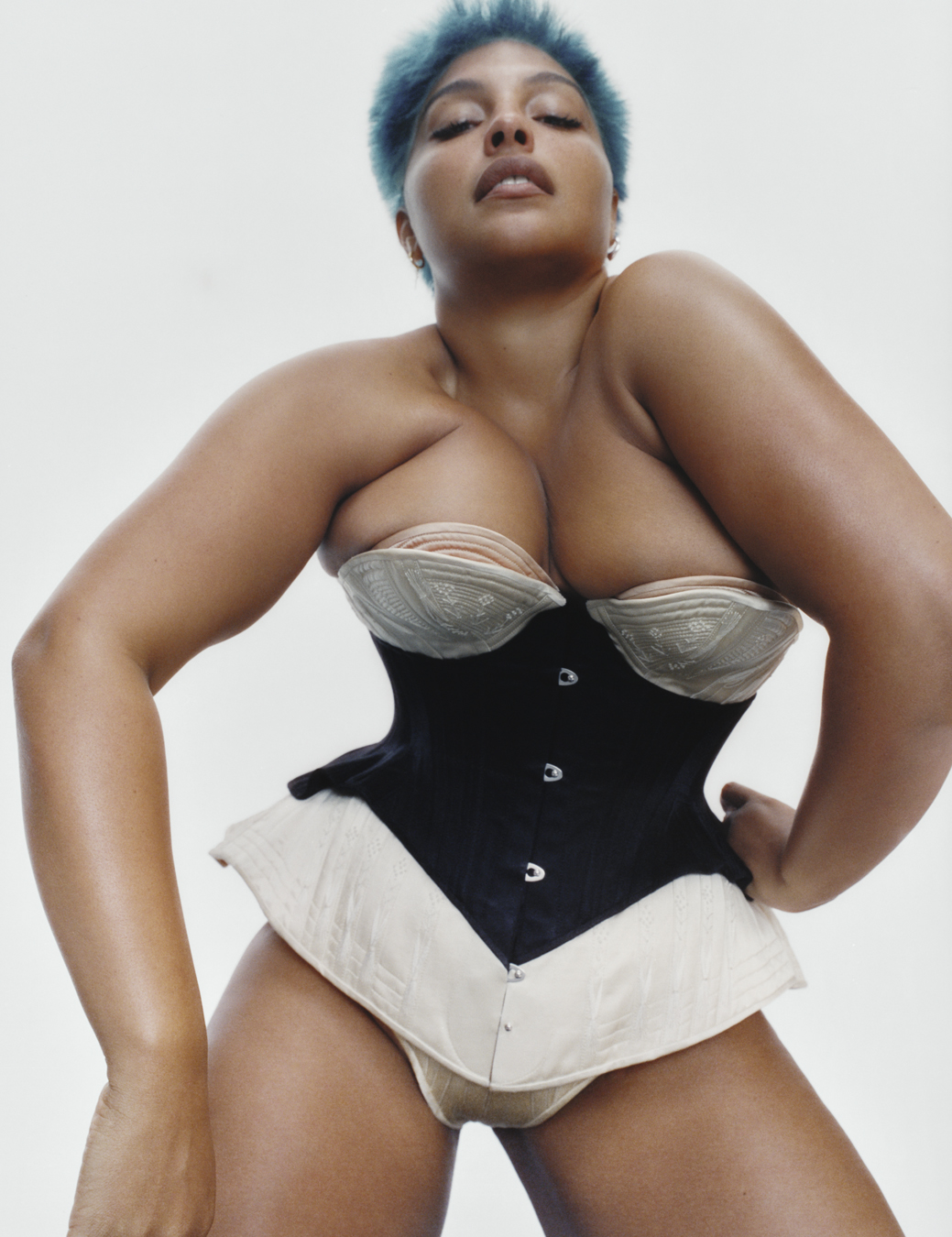
Ericka: I have to mention that you were on the cover of Vogue.
Paloma: Yeah, I was on that little cover.
Ericka: I was bawling when I watched the video you did with your mom and family when you showed them the cover for the first time. I was a mess. Because sure, we’ve walked some runways, but that’s a big ass deal.
Paloma: It was a real moment in my career. I have critiques of that magazine, and I have critiques of fashion in general, but I can also simultaneously be proud of myself and understand that was an insane moment. That’s why I needed to share it with my mom and grandma, because I didn’t know how I was going to get through that moment without them. And of course, people die for my cute grandma. She’s been booked and busy all of the last year, which I’m obsessed with.
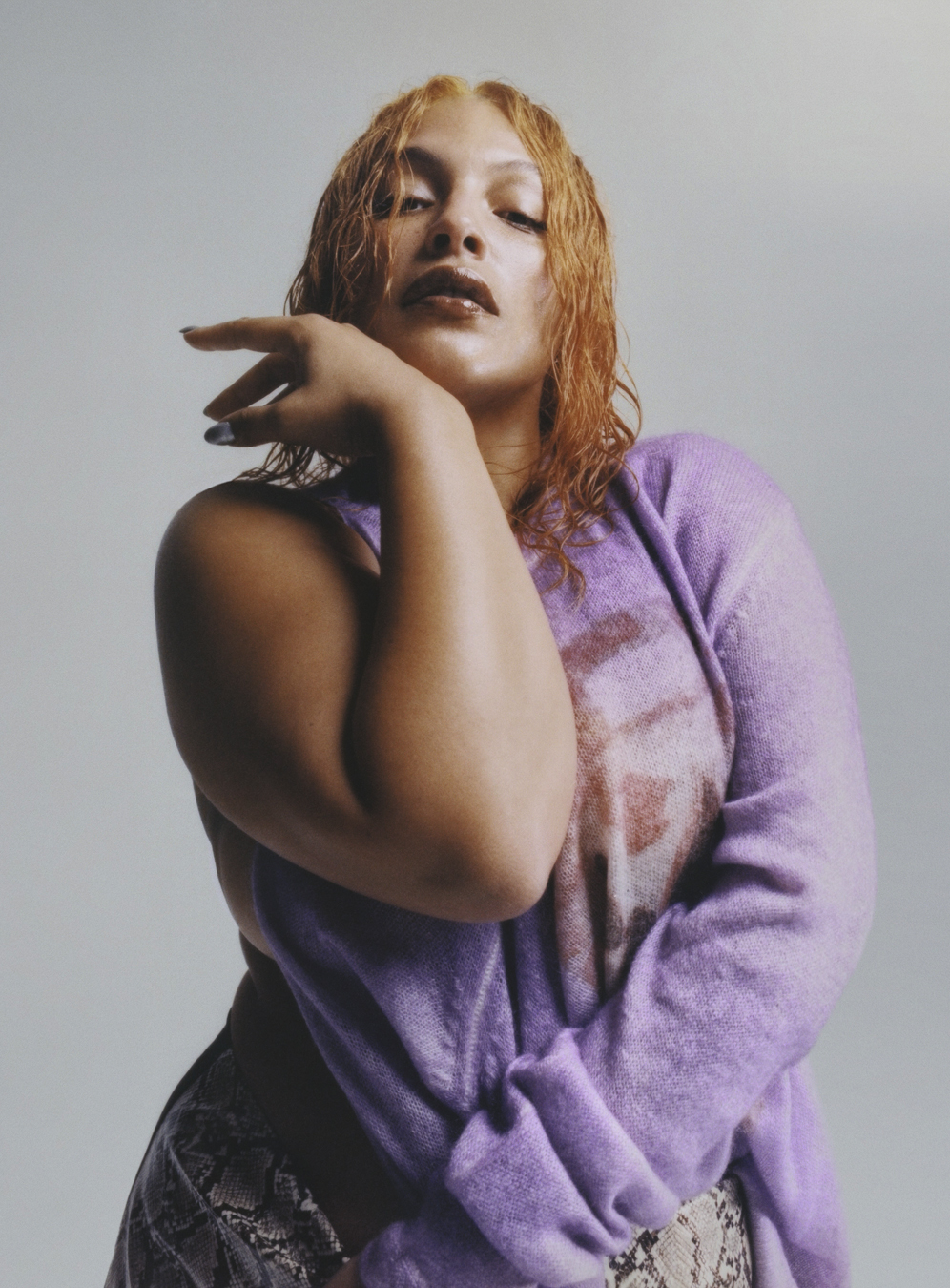
Ericka: What does grandma do?
Paloma: Grandma is 97 and she is a legend. We did a Coach campaign, and a Tiffany campaign, and she loves it. She grew up in the South and loves luxury and takes real pride in her appearance. She’s just here for it. It was a gift to be able to share that with her. It can be really disorientating and strange and befuddling – fashion made all that happen so, even though sometimes I feel like I hate it here, actually it’s also good and I’m happy. You get to have complicated feelings about it. I didn’t make fashion complicated. Fashion came complicated.
Ericka: I’ve gone through waves, too. I was kind of thrust into this world when I went topless to a music festival. I’d always wanted to model, but there were no models who looked like me on America’s Next Top Model or anything, so I just thought it wasn’t going to be for me. Then, I was thrown into it and had to really sit with why people were latching onto me – not that I’m not hella fine or that I can’t turn these looks, but because the focus can be so one dimensional and that’s fucking frustrating. You’re “a breast cancer survivor”, or you’re “a plus size model”. These are very empty categories because there’s so much more to a person.
Paloma: It’s really disorientating because in this world we just operate as people. In certain environments I’m not hurting for desire, and in the communities I actually live in I have a whole litany of privileges. So it’s disorientating to then be part of an industry where I’m relegated to a corner for simply being a size 12 – which is such a standard size in the US. It shouldn’t be radical. It’s frustrating.
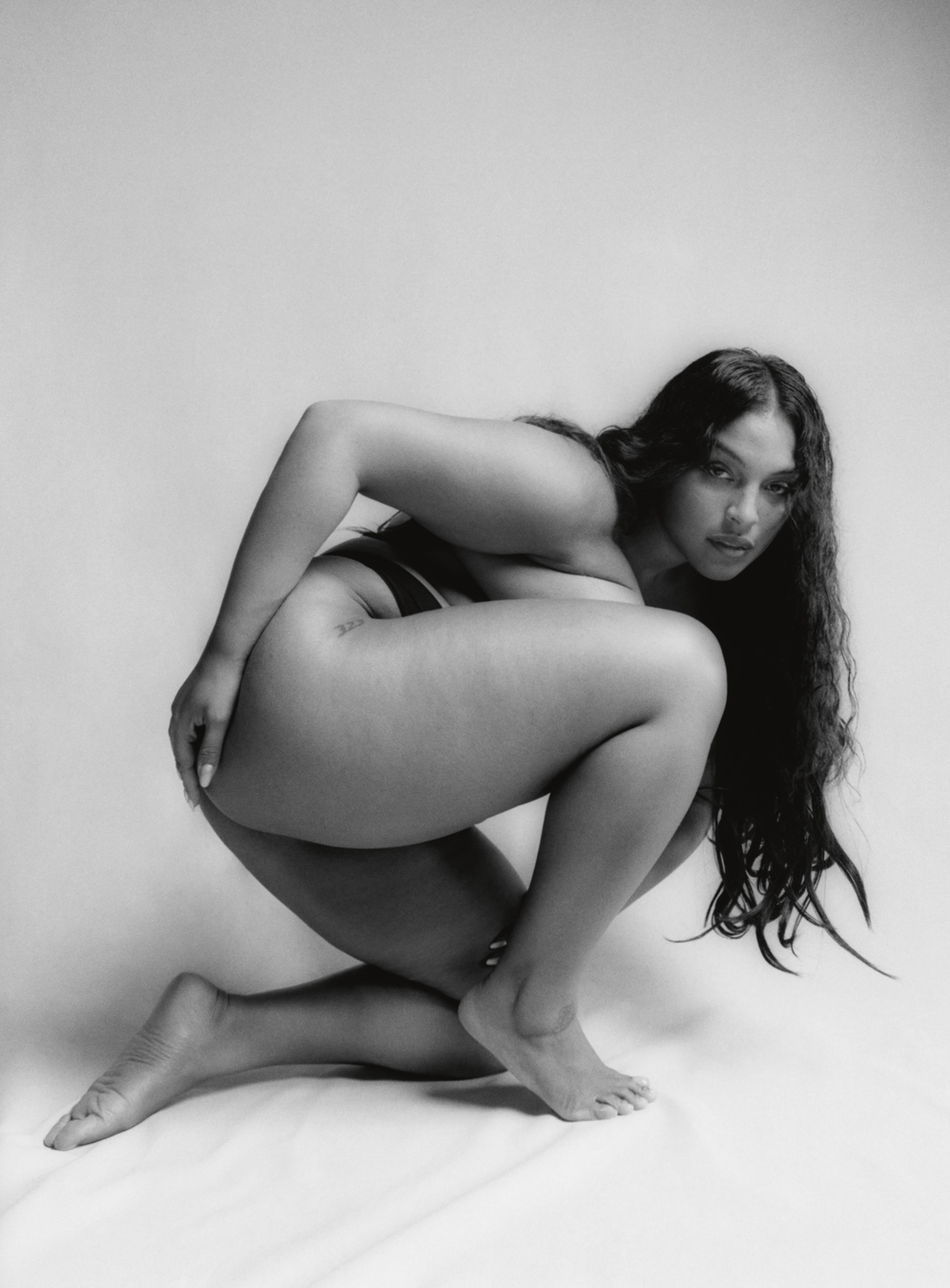
Ericka: And have you always felt comfortable in your body?
Paloma: You know, I went to school with a lot of wealthy white girls, and that really affected my idea of beauty – plus that was reflected in a lot of the media and fashion that I looked at then: in the noughties, it was the whitest shit ever. But I also wasn’t really seeing myself in Black culture at that time – it wasn’t during the BBL era, it was really all about being thin and having abs. It was very isolating.
“I know I’m a bad bitch even if in Paris, it’s like they’ve never seen a fucking fat person in their lives.”
But then, as you get older, you start to realise that you can be seen, and desired, and loved, and you figure out how to dress and feel good and all these things. Learning to know our value and our beauty is informed by experience, and from observing the world. I know I’m a bad bitch even if still when I go to Paris, it’s like they’ve never seen a fucking fat person in their lives. In the fashion industry, there is a faculty of wonder, but what overrides that is a faculty of fear. It’s crazy: in my life, and in the world, I’m not alone, but in this fashion world I can feel alone. Plus, if you try to step out of their reductive checkboxes and string a couple of sentences together then…
Ericka: Then you’re an activist.
Paloma: Exactly. “Phenomenal! You’re an activist! Oh, I have an article for you!”
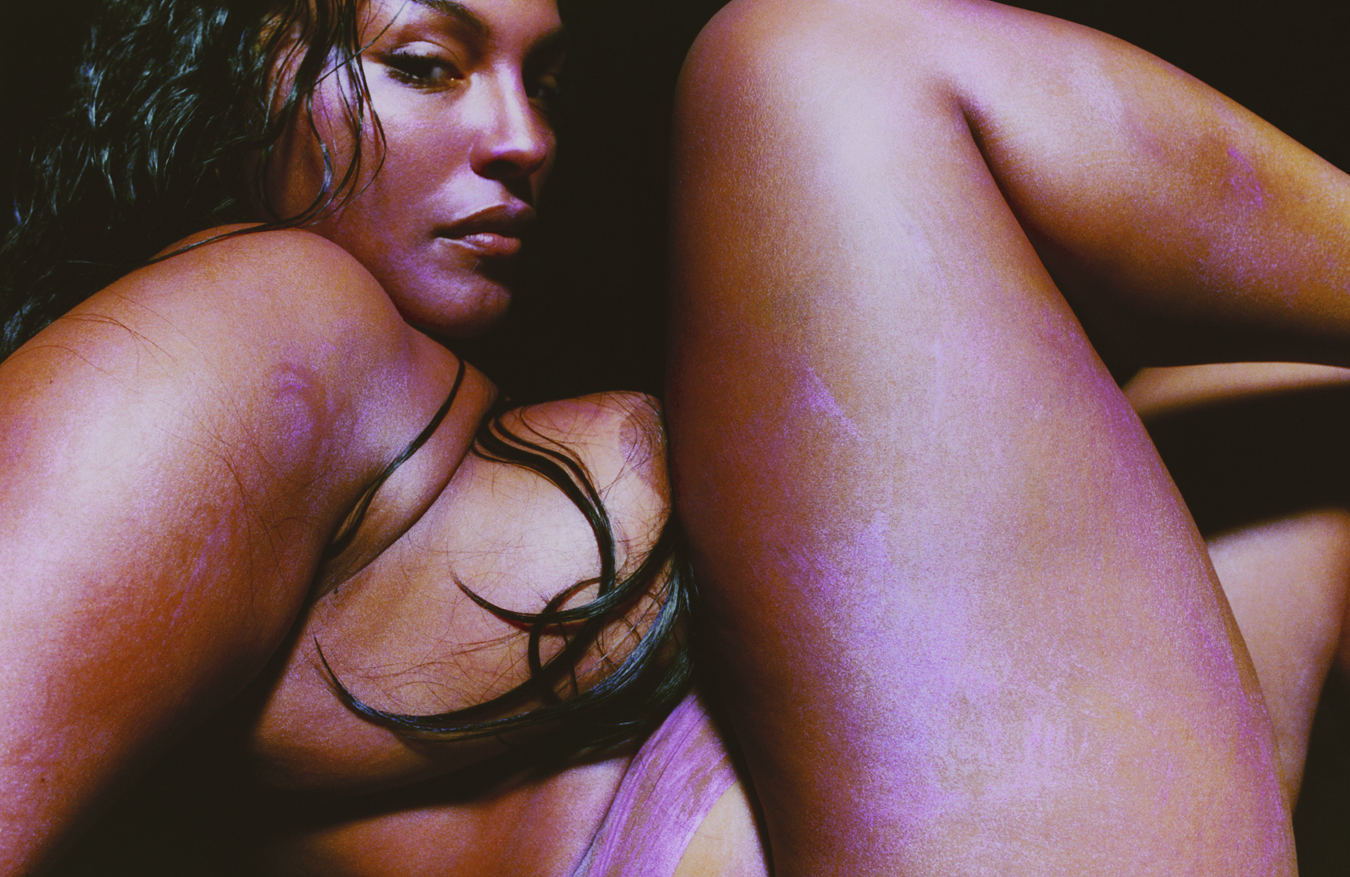
Ericka: Considering what you’ve said – and I don’t know that there’s an easier way to say this – do you feel like you’re used by the fashion industry?
Paloma: I think in the fundamental definition of the word used: yes. But I also use the checkboxes to push the narrative that I came here to push, too. When I came into fashion there was a divide between the plus size industry and high fashion, and I think there was a vacancy for a person like me. I didn’t come here to be the only one – and I can only be myself – but I came in guns blazing. Archetypal, commercial curve agents didn’t know what to do with me because I didn’t know how to wear peplum dresses or a barrel curl, but it was crazy because I looked and dressed like all my friends in New York, I just didn’t know what an eyelash curler was. To an extent, I’m bridging conversations between those I have within my community and what’s happening in fashion. The things we’re talking about right now aren’t radical, and are a part of my regular interpersonal conversations, but it’s a really new dialogue within the industry.
Plus, growing up as a mixed Black person, I did see light skinned models – but the only person in the curve industry that I could have looked to was Toccara. And she is beyond beautiful, but I was wearing Dickies and I had a stain on my shirt; I was a tomboy. Growing up, I never felt much authority in my sexuality – being Black or brown, you get overly sexualised from such a young age, and I’ve never been thin so I always took up a bit more space. But I never saw anyone who existed at these different intersections of being kind of weird and kind of a tomboy, and whatever else. It’s been interesting to see how that conversation has played out on social media, because even though I personally felt like that wasn’t necessarily my role, sometimes I see people look to me and feel as though maybe I’m supposed to be here to help this sometimes very myopic industry expand. I’m not just here to lap it up and be glamorous. So am I used? Yes. But I’m also using it. But it’s non linear; sometimes it feels like one step forwards and two steps back…
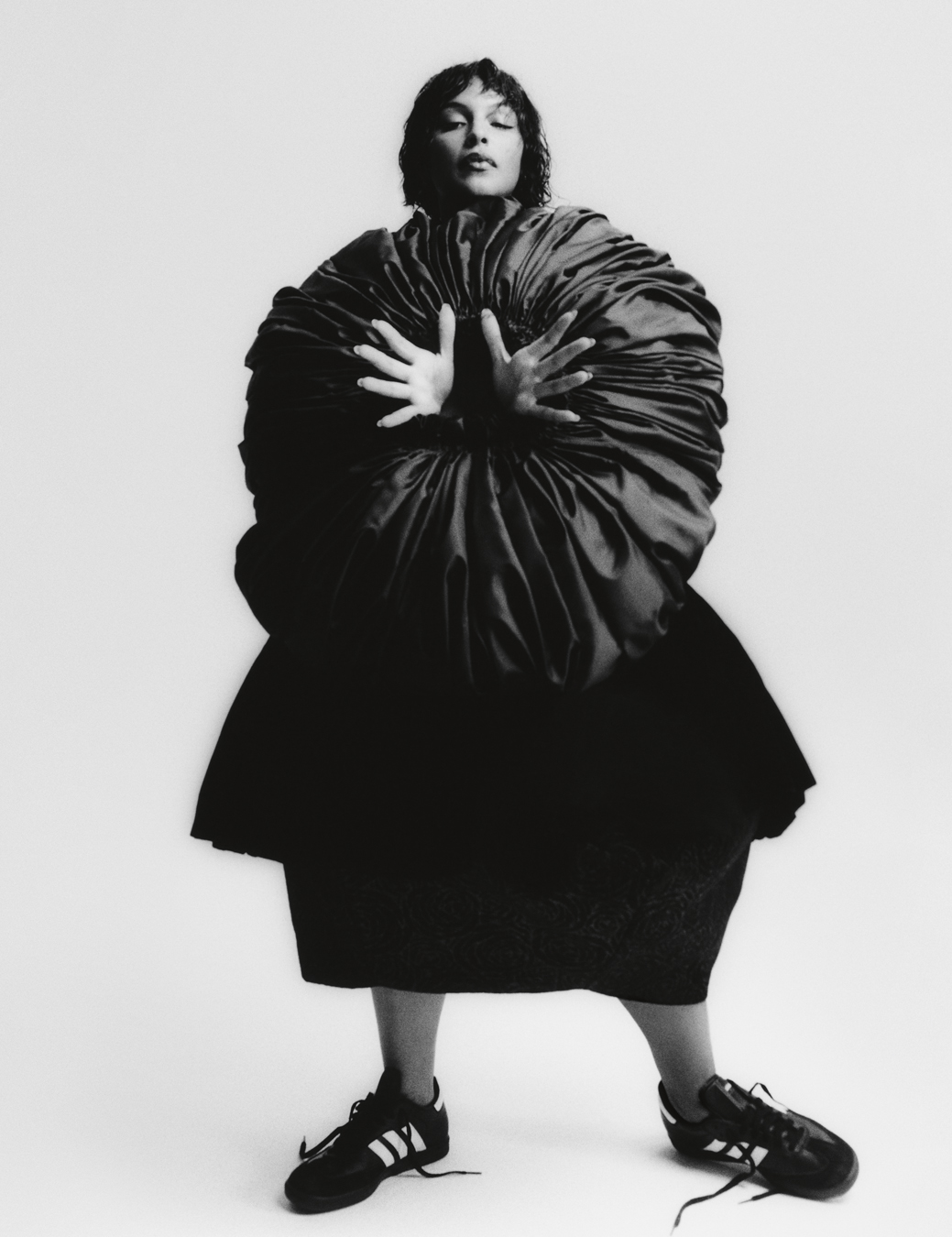
Ericka: Yes. I feel that.
Paloma: Last season it really felt like everything was about sex – and I’m sure you can identify with the idea that: if you occupy a body over a size 10 in fashion, you’re usually either naked, an art reference, or a granny. There’s no in between. You can’t be cool. You can’t be the character study. But last season, even though it was all about sex, it was statistically the least body diverse season in the last five years. And I was like, “But weren’t y’all putting us in stretchy knit dresses for the last fifteen years anyway? So, couldn’t you put us in this mesh dress now?”
Ericka: Do you think that considering the fashion industry latches onto the most palatable body to make its point in terms of diversity and silence critique, there have been genuine shifts in the fashion industry? I ask this question with so much scepticism. Do you even think that it’s possible, considering the notion of beauty is, in this country at least, white, thin, cis and able-bodied?
Paloma: Period. What is propagated and supported is always in proximity to being able-bodied, to being thin, white, and cis. That shit is absolutely not lost on me. The idea for this story for i-D was based around what could live on after me and become a new point of reference. I’m participating in this dangerous industry, but I want a new generation of Black and brown models to see different people on the moodboards. So we wanted to create images that could be new references, the next textbook, or could expand people’s minds about what beauty could be. And that is hard. How do you feel about whether there have been, or can be, genuine changes?
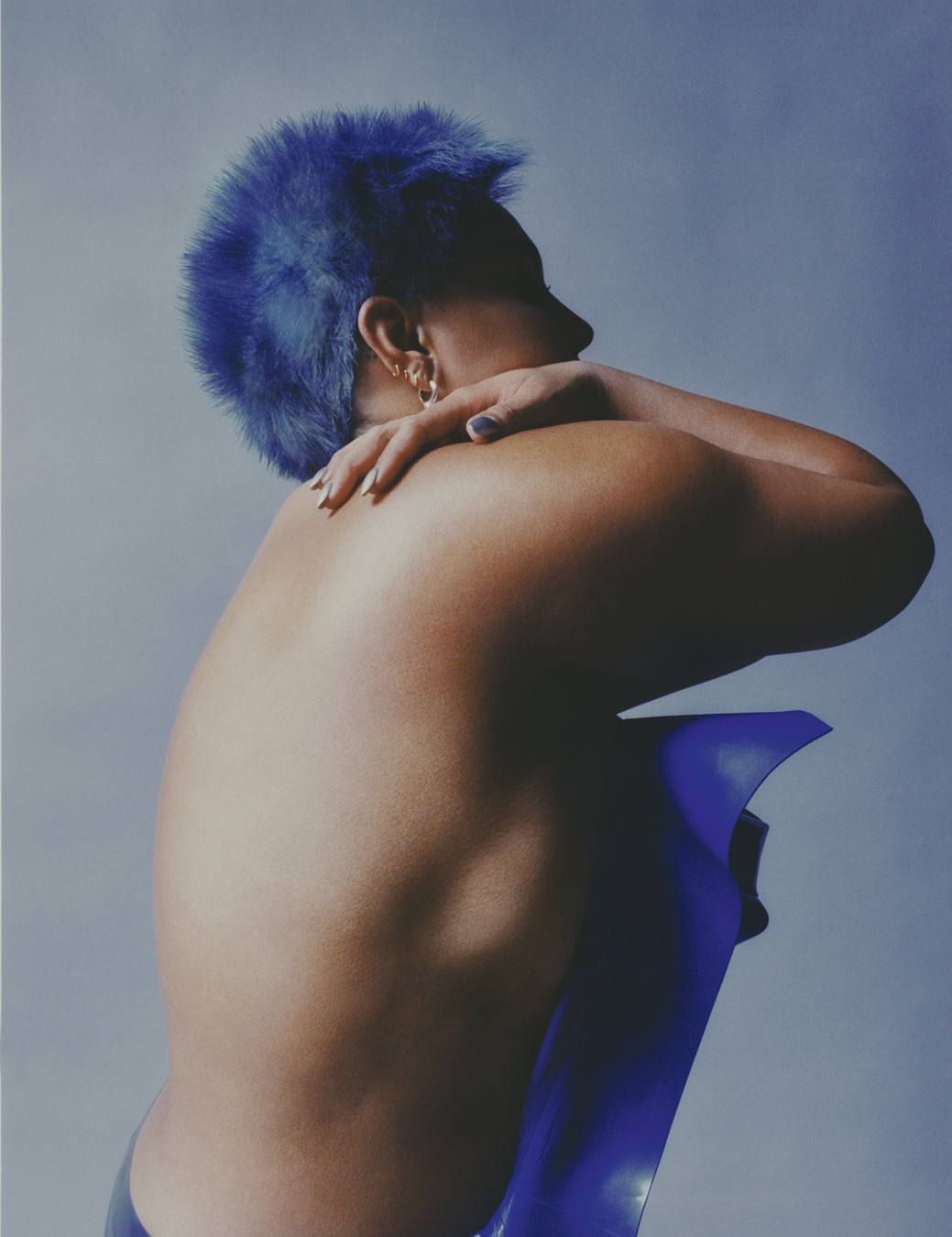
Ericka: To be honest, I feel quite burnt out at the moment. Being at fashion week, or a photoshoot – there’s so much that’s tiring. My partner manages me and we have to create padding so that the space is safe. There’s never an assumption that we’re going into a space where my body is going to be regarded as though it deserves to be there. Not just that it deserves to model, but it even deserves to be there, to be spoken to. On top of that, I model mostly naked and there’s so many levels to that too, because I have to come out of my body a little bit; it can feel hard to be present – and also trying to get a photo that’s cute!
Paloma: I really know what you mean. I’ve been doing a lot of assessing during the pandemic, and what I’ve gotten out of that reassessment is how exhausted I was of feeling like I had to hang my skin suit up at the end of the night. I spent years on aeroplanes, neglecting friends and relationships all because I prioritised this thing that I thought would cure me. That would cure a hole manufactured by systems that told me I wasn’t shit. I think in this industry, visibility can be the goal – and visibility is a fucking trap because it’s just everybody looking at you through a prism and then having to then spend years cultivating your own humanity.
Ericka: My work started with visibility simply because I wanted Black people to check their breasts – especially non-binary, queer, trans folk. That’s why I went topless at that festival, just to raise awareness and create visibility because even things like cancer are portrayed as white or middle class in places like commercials and movies. When I had cancer, I was broke in Brooklyn, working full time while having chemotherapy, and I had no idea how to navigate that. I’d never seen a double mastectomy on a Black body. So it started with visibility, but then I started to see how the media latches onto you and will suck you dry.
Paloma: It’s a trap.
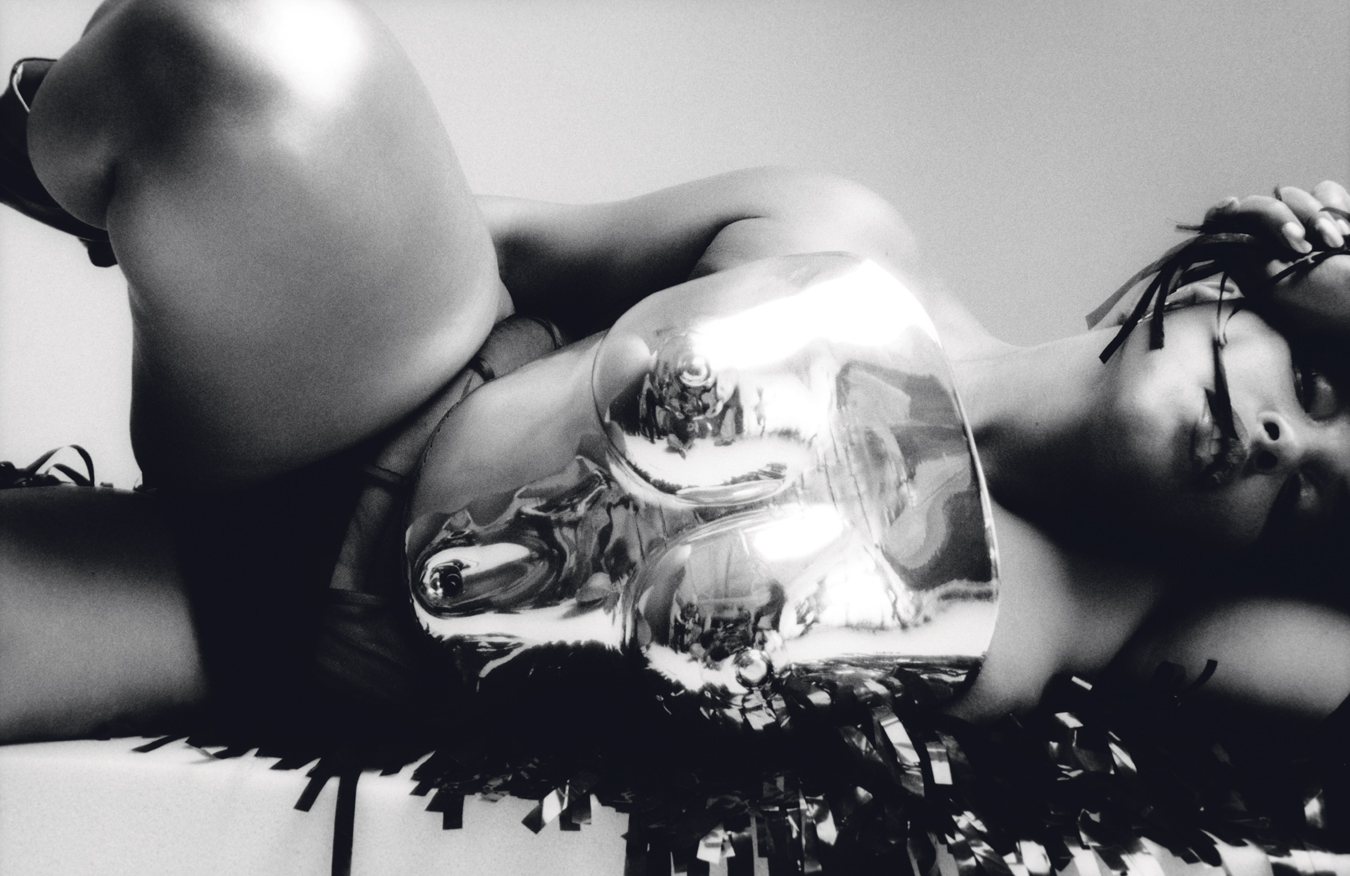
Ericka: Yeah, and then Breast Cancer Awareness Month rolls around every October and it’s still the same people starring in these commercials. Success here requires disruption – it’s going to require me calling out some of these advocacy campaigns. It’s going to require me to email them and ask: “Why did you think you should only have white people in your campaign?” Sometimes visibility doesn’t do anything. It certainly doesn’t address the medical system, which is built on anti-Blackness. So I’ve had to really expand beyond visibility. I had a background in organising, so I had to kick that into high gear.
Paloma: Will you tell me more about your organising background? It’s really interesting.
Ericka: I started organising in college at the University of Miami. We did a lot of work around gentrification in Miami, in an area that is now is the art district: the main highway that was going to create that space went through a predominantly Black neighbourhood. Then, when I moved to New York, I was a part of a small organising community of folks. It wasn’t paid work – I was doing it voluntarily, but it might as well have been. Sometimes I forget that I have an organising background because just growing up Black in this country, you’re kind of thrust into speaking up for people and organising on their behalf; there’s a demand for your body to do labour in that way. That’s something that I have really rallied against. It took me a long time to get there, but I’m there.
Paloma: That is so true. One thing I have been thinking about is how important it is for Black women to rest, because we’re not taught to do that. Like, why do I feel on a cellular level as though I have certain responsibilities? What is that drive to caretake all the time? Yes, it was taught to me by my mom and through my grandmother – but it’s also in my DNA because for so many generations of Black women that hasn’t been an option. So it’s so important for us to reclaim the action of rest. We need so much to change. It’s actually quite simple, but you need a lot of people to think more critically and intellectually.
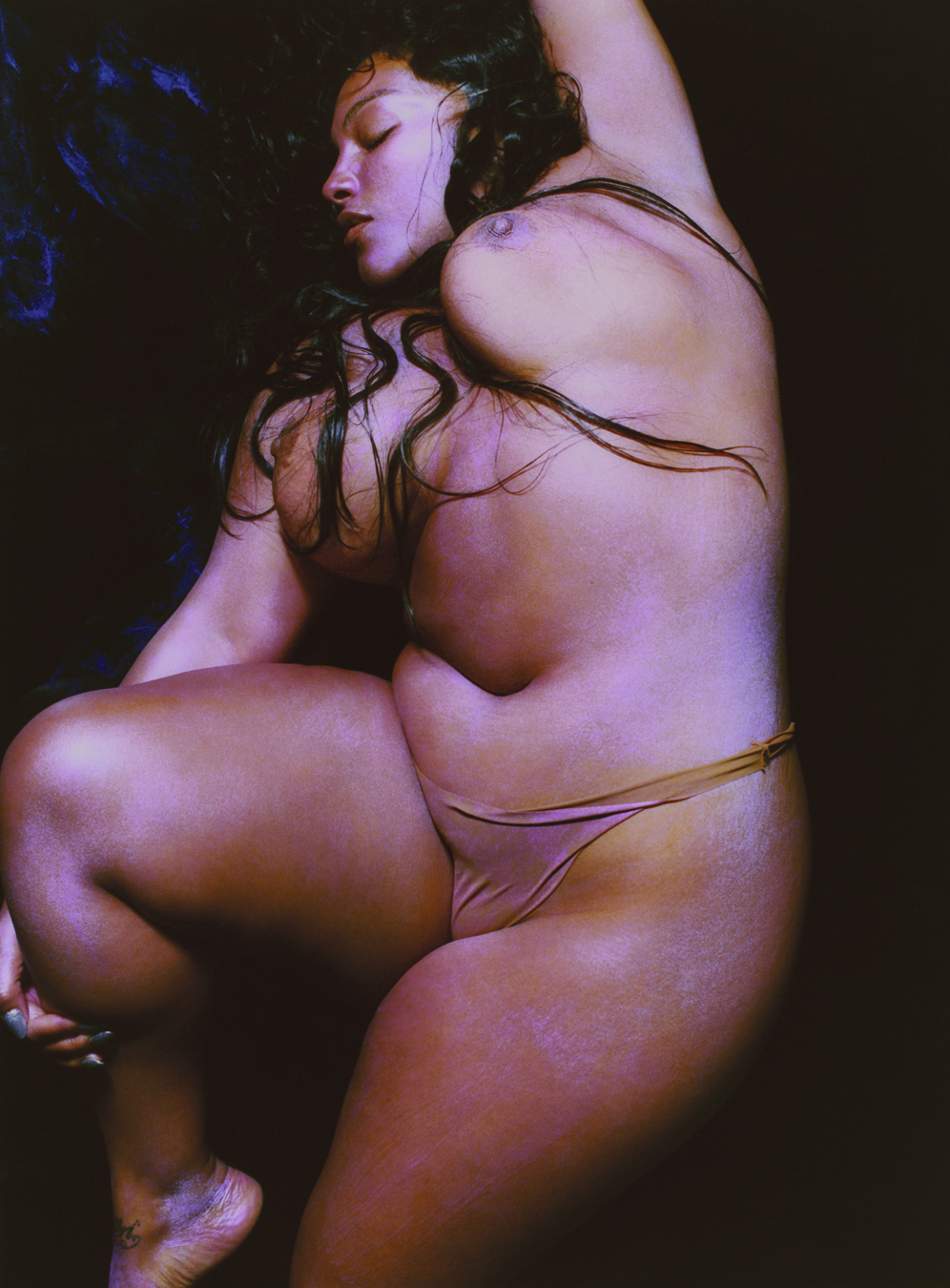
Ericka: Critical analysis is gone. There’s none. That’s another reason why I’m burnt out too, because it’s just impossible to talk to people online with any nuance.
Paloma: That’s true even within more radical leaning communities, and even with allied folks. I remember once I made a very simple comment, something like “Hey, just a little reminder that fatphobia is anti-Black.”
Ericka: Yup. Let’s go there.
Paloma: Exactly. And this is just not some idea that I just arrived at; even from a young age that intersection seemed very obvious to me, but still I researched and read literature, theory. But the responses I got to this were just straight up dumb. People were saying: “Oh, so only Black people can experience fatphobia?” It wasn’t just giving anti-intellectualism. It was just dumb.
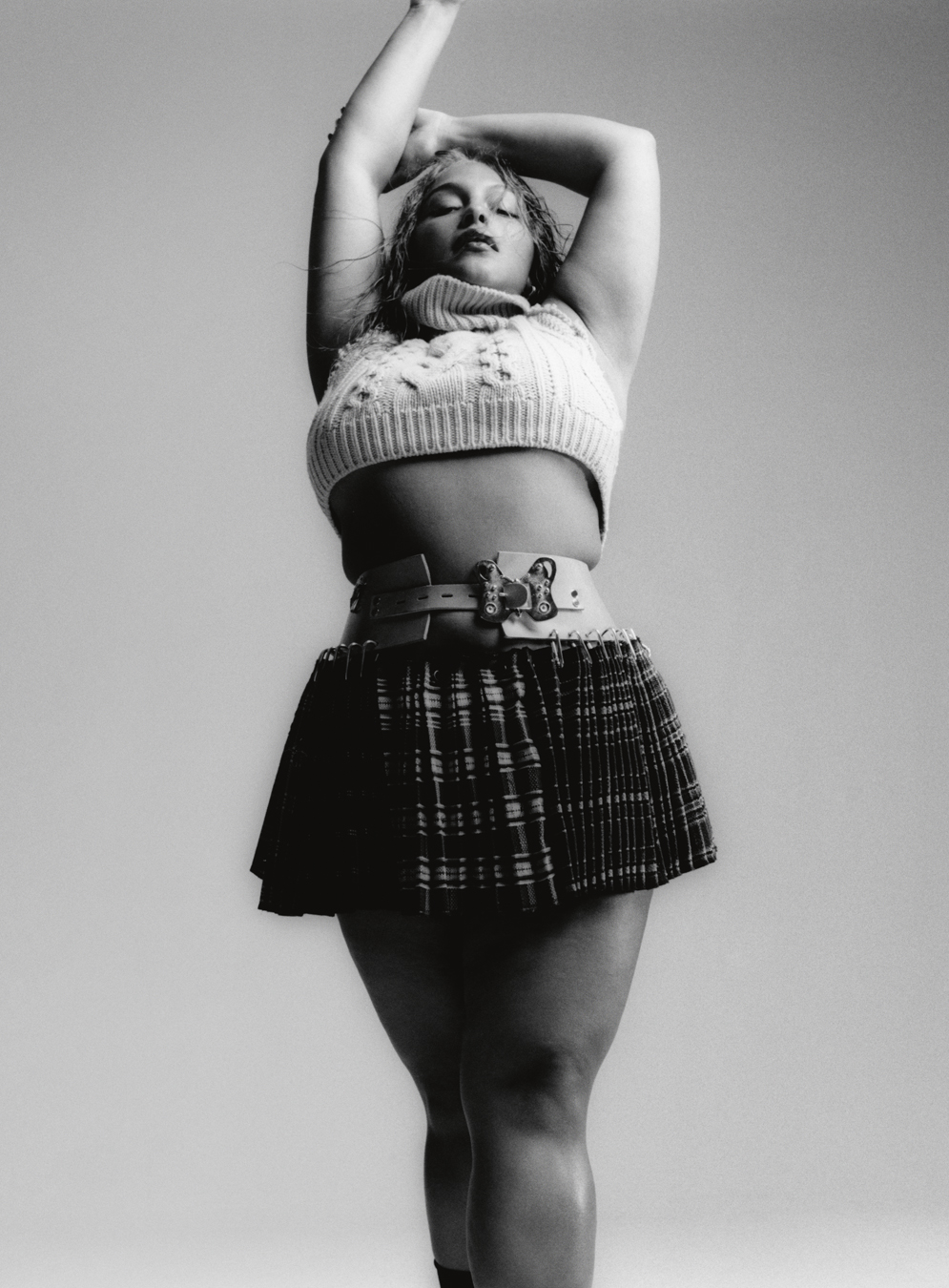
Ericka: The answer has to be more reading. I often just wish people would read something; just pick up a book.
Paloma: Even a Kindle, boo. A kindle will do. Did you grow up in a family that prioritised reading and academia?
Ericka: Yeah – my dad was very much like, get a good education, get a job, get a house, work hard and you can attain all these things. And it’s not this plus this equals that: I have educational privilege, holding a masters degree and still as a Black person I make less than white people with a Bachelors degree, and actually it was going topless at a music festival that catapulted me into this career. But I come from a family of teachers; I’m an educator at heart. And I get really geeked about learning new things.
Paloma: Me too. But I’m learning to give myself a bit more grace around the analysis because sometimes critique can move into judgement. I don’t know if people realise, but I’m not making these assessments because I just want to shit on the fashion industry. It’s because I dream of a better industry.
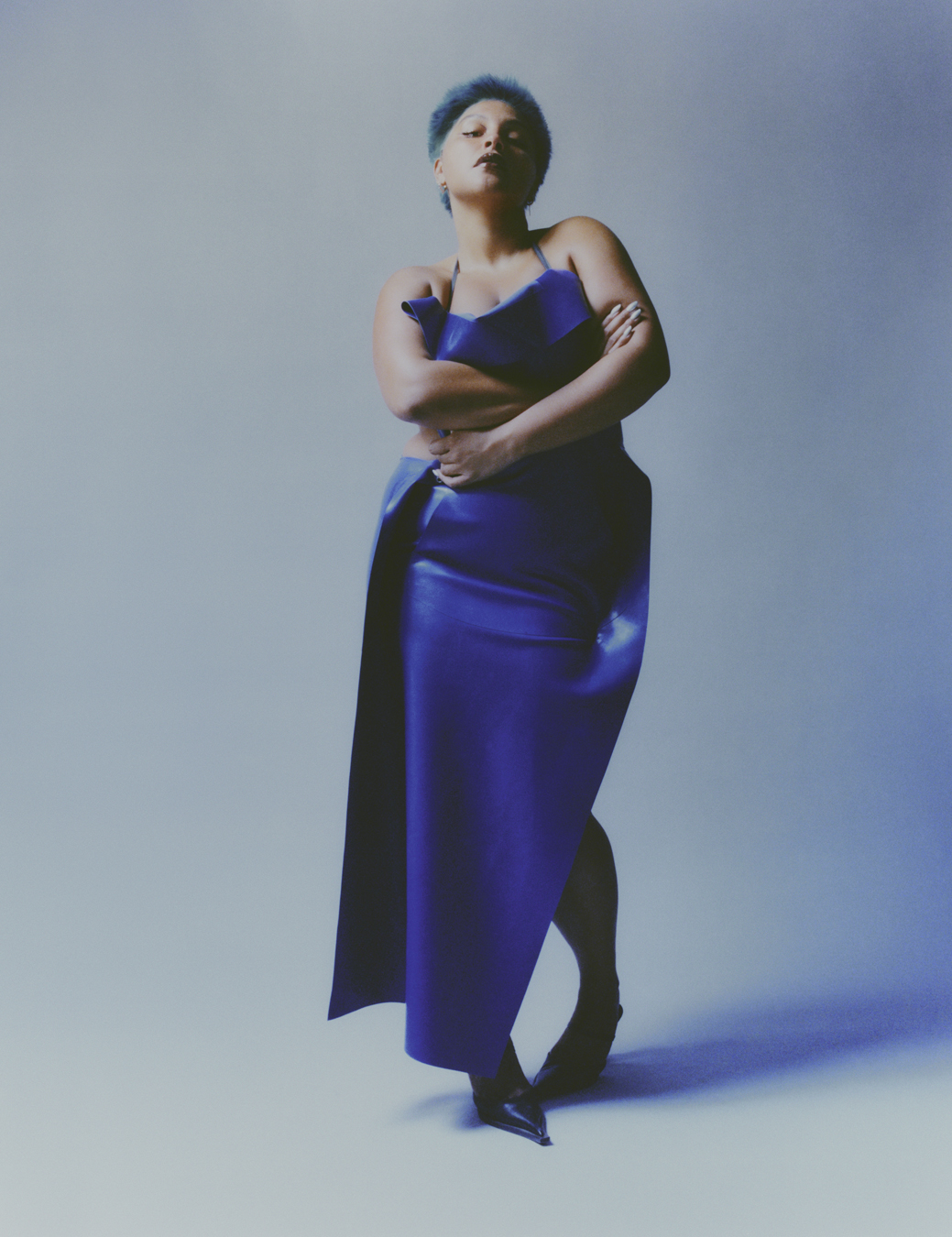
Ericka: Exactly. And there is this level of hope that I have where I’m like, I will reach you at some point. That hopefully what I’m learning, and what I’m saying will connect with people.
Paloma: For sure. For me, it’s been about finding purpose and maintaining connection, and strangely my body has been the platform for it. What this story was about was reclaiming perceptions of what people think plus size bodies are capable of; how we’re supposed to look, or supposed to exist and occupy space in this world. And I wanted to do it visually. I’m about to be 30 and I’m feeling sexy, which isn’t something that I felt authentically when I was younger. I am sexy, and I am not just going to wear a stretchy dress. I’m wearing the Miu Miu.
Ericka: Exactly. On set, there will be the looks.
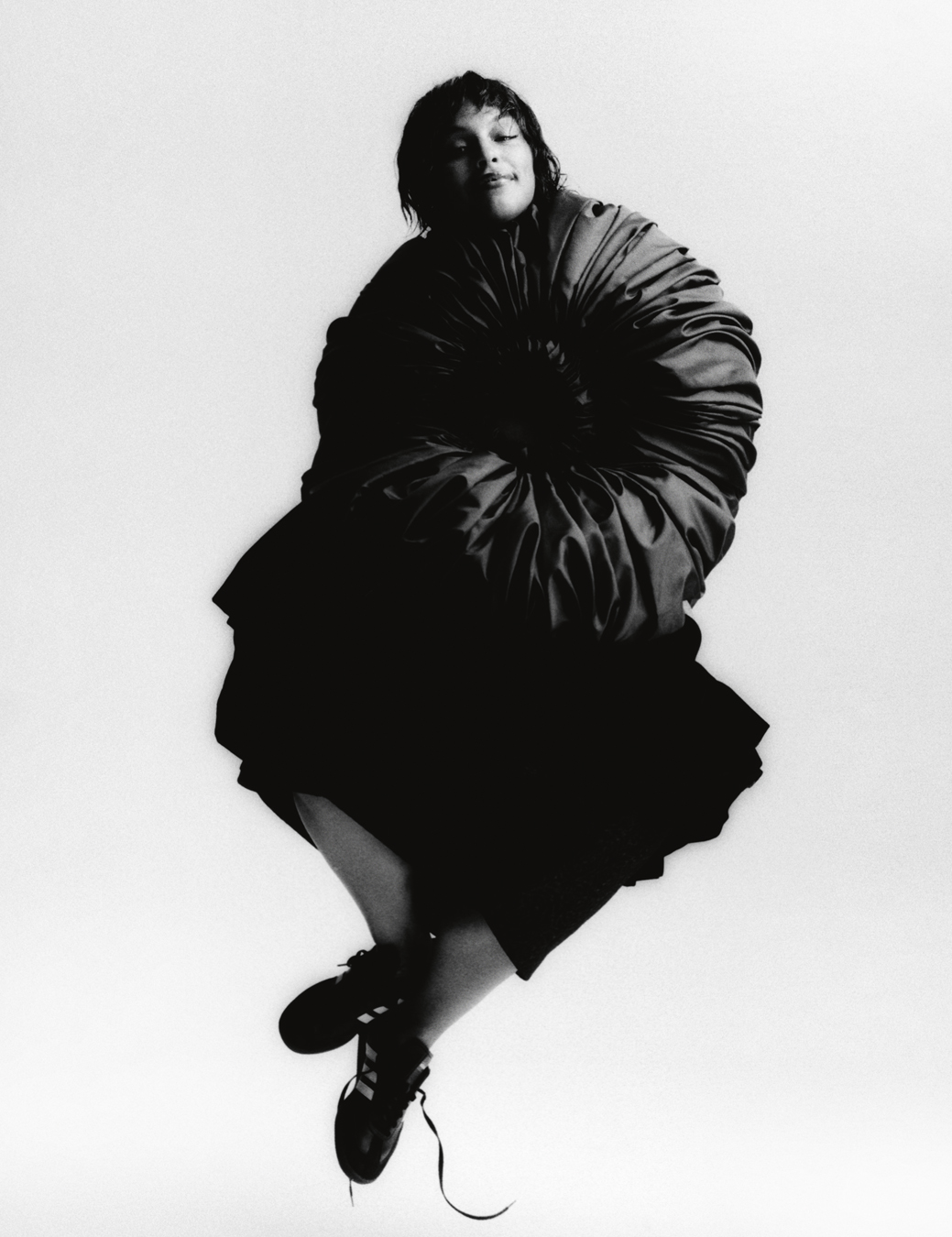
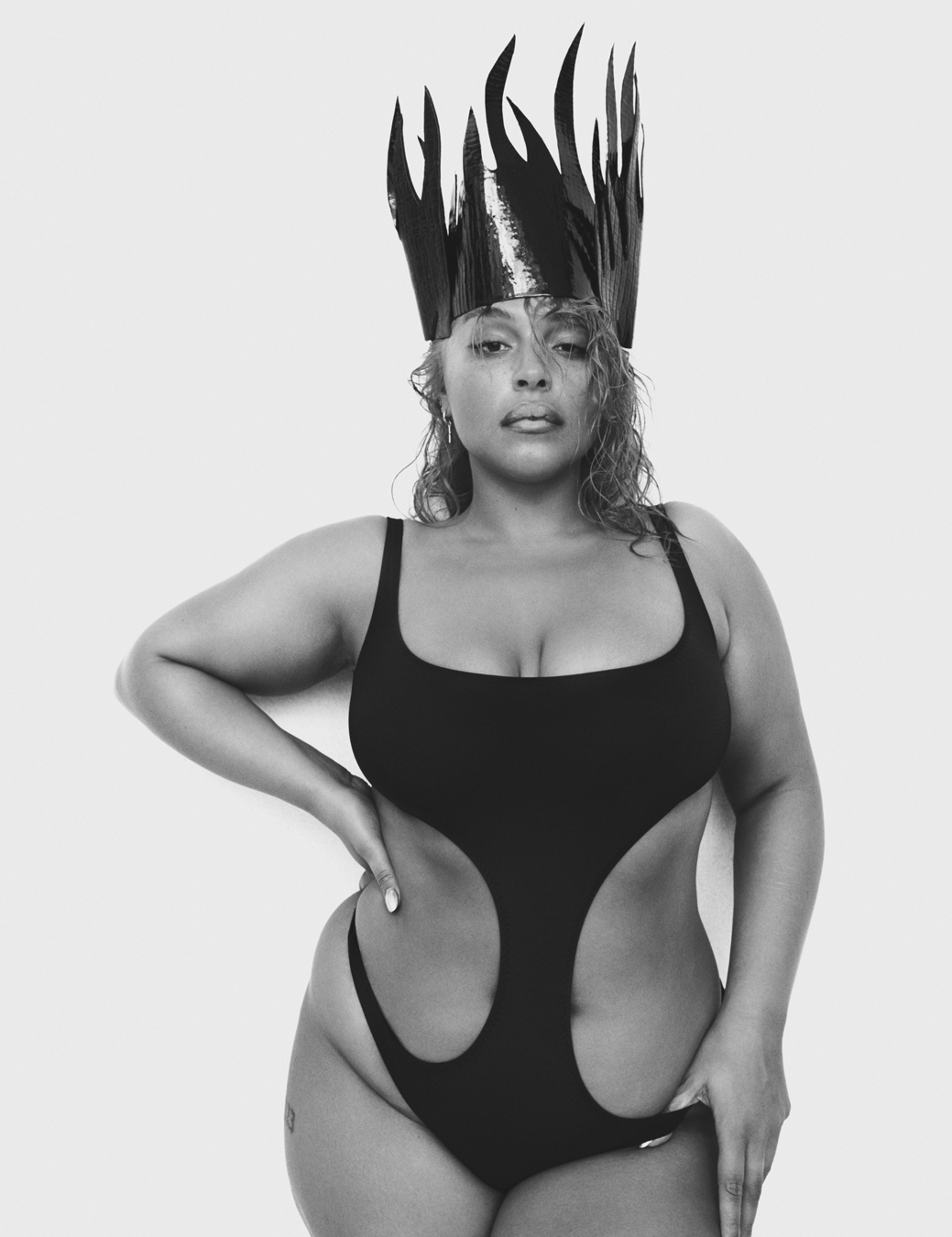
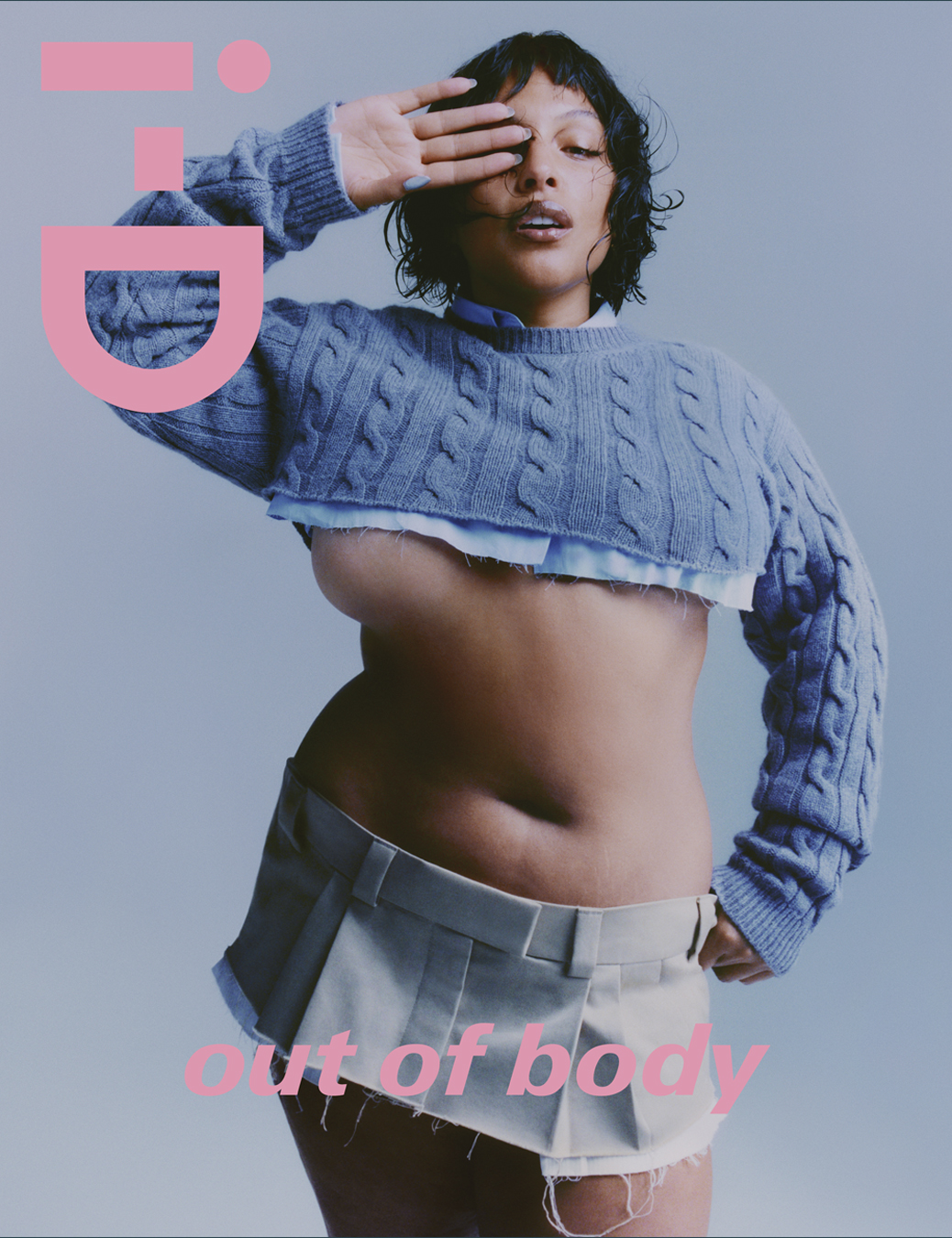
Follow i-D on Instagram and TikTok for more on fashion.
Credits
Introduction Osman Ahmed.
Photography Sam Rock.
Fashion director Carlos Nazario.
Hair Cyndia Harvey at Art Partner.
Make-up Thomas de Kluyver at Art Partner using Gucci Beauty.
Nail technician Lauren Michelle Pires at Future Rep using The Gel Bottle, Shade – Silver Tree.
Set design Samuel Overs at New School Represents.
Photography assistance Piere Lequex, Grace Difford and Sammy Khoury.
Styling assistance Raymond Gee, Anna Castellano, Magali Fedele and Antoni Jankowski.
Tailor Nafisa Tosh.
Hair assistance Emilie Rose Bromley and Karen Bradshaw.
Make-up assistance Elise Priestley and Josh Bart.
Nail technician assistance Ami-Rai.
Set design assistance Felix Villiers.
Production Ragi Dholakia Productions.
Casting director Samuel Ellis Scheinman for DMCASTING.
